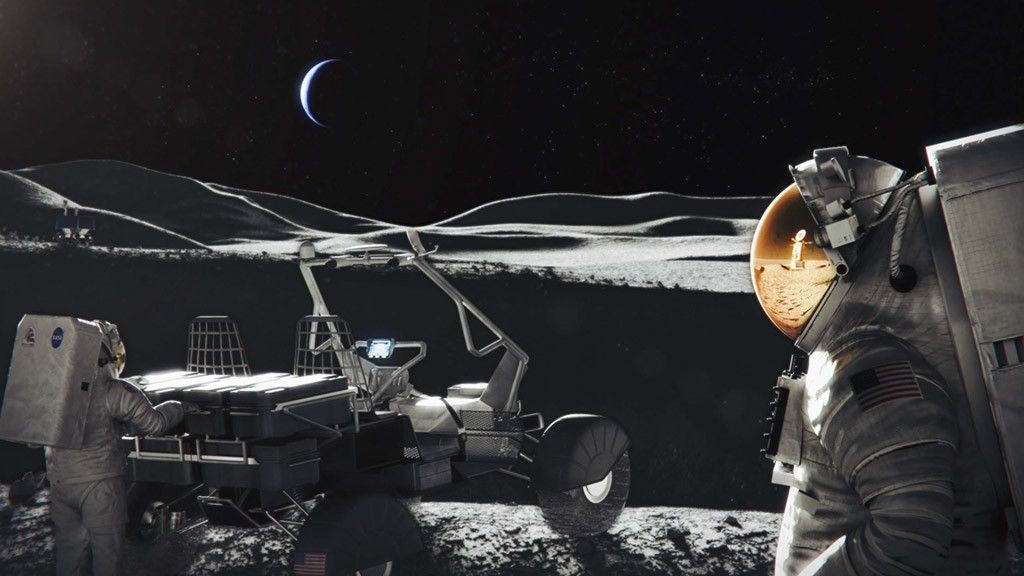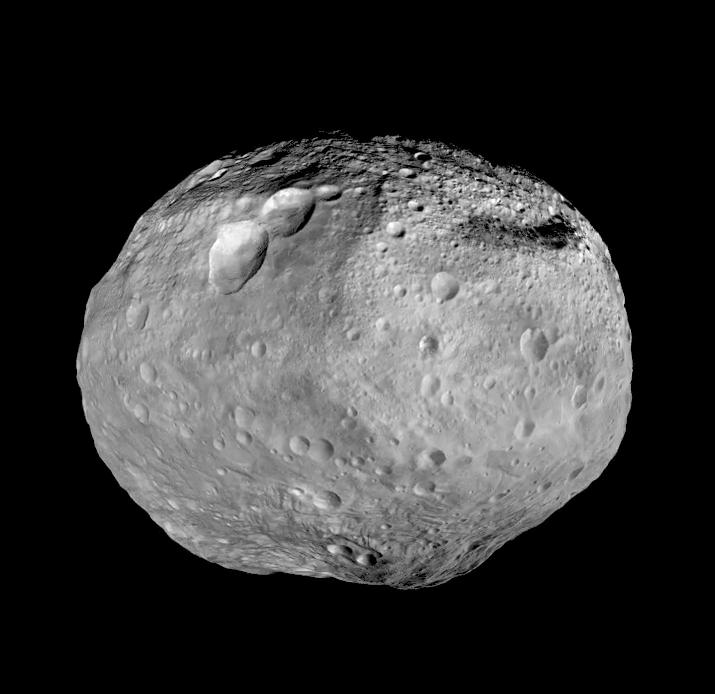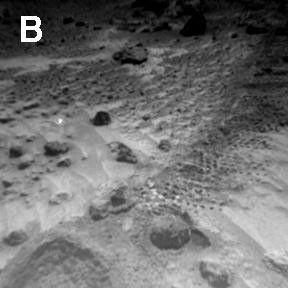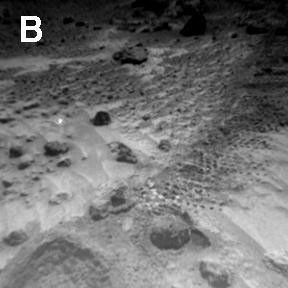Sojourner Rover View of Well-Rounded Pebbles in “Cabbage Patch”
| Credit | NASA/JPL |
|---|---|
| Language |
|
Sojourner Rover image of rounded 4-cm-wide pebble (lower center) and excavation of cloddy deposit of "Cabbage Patch" at lower left. Note the bright wind tails of drift material extending from small rocks and the wheel track from upper right to lower left.
Well-rounded objects, like the one in this image, were not seen at the Viking sites. These are thought to be pebbles liberated from sedimentary rocks composed of cemented silts, sands and rounded fragments; such rocks are called conglomerates.
NOTE: original caption as published in Science magazine
Mars Pathfinder is the second in NASA's Discovery program of low-cost spacecraft with highly focused science goals. The Jet Propulsion Laboratory, Pasadena, CA, developed and manages the Mars Pathfinder mission for NASA's Office of Space Science, Washington, D.C. JPL is a division of the California Institute of Technology (Caltech).
Photojournal note: Sojourner spent 83 days of a planned seven-day mission exploring the Martian terrain, acquiring images, and taking chemical, atmospheric and other measurements. The final data transmission received from Pathfinder was at 10:23 UTC on September 27, 1997. Although mission managers tried to restore full communications during the following five months, the successful mission was terminated on March 10, 1998.






























